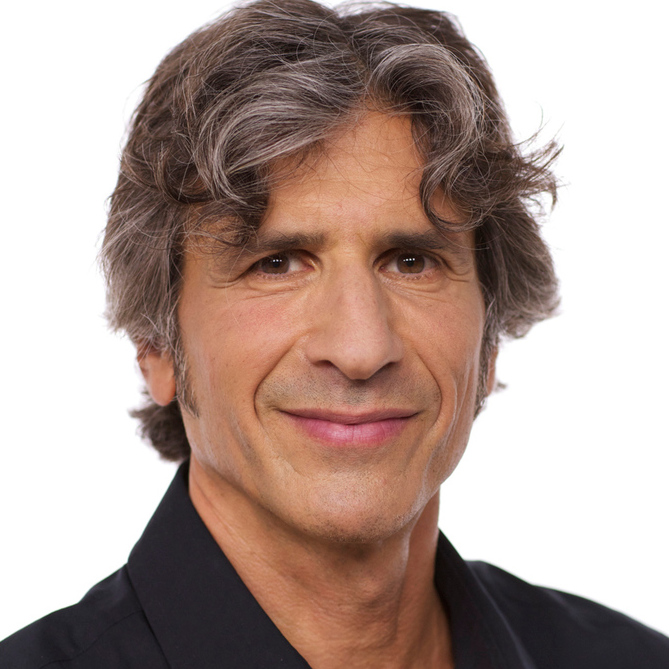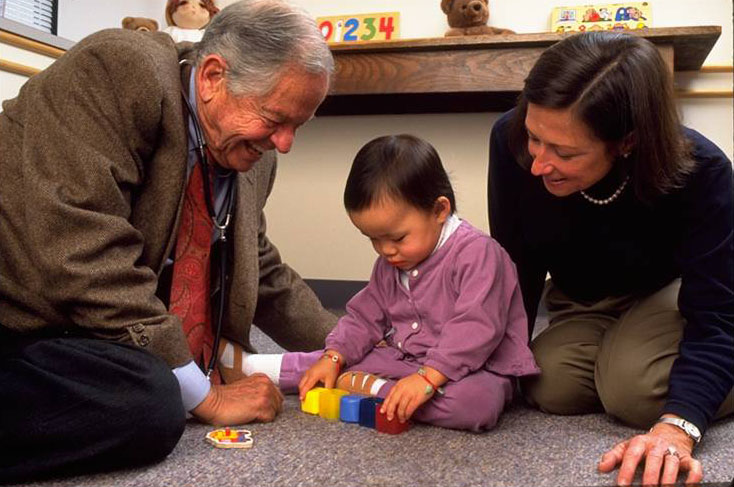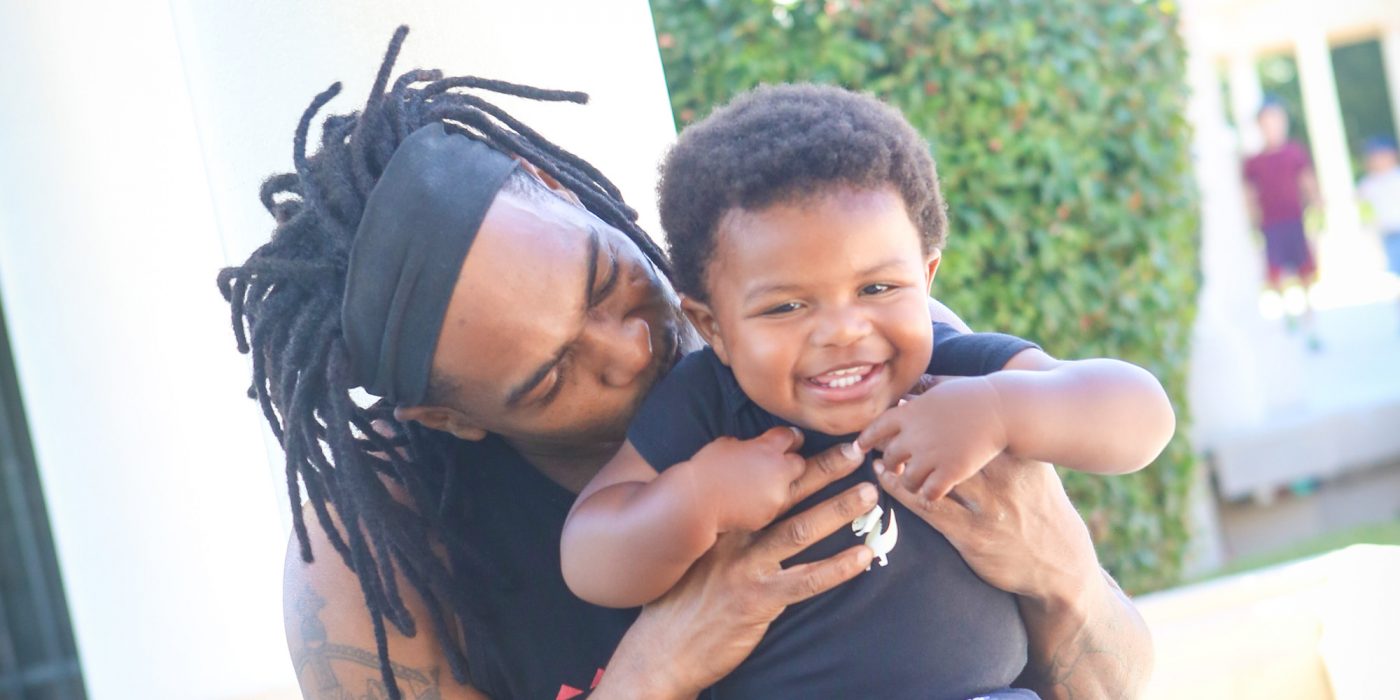In Part I of this interview, Dr. Joshua Sparrow, executive director of the Brazelton Touchpoints Center, delves into the legacy of founder T. Berry Brazelton and describes how Touchpoints is carrying on. Here, Dr. Sparrow explores the present moment and the consequences for young children.
Mark Swartz: We’ve been hearing the word ‘trauma’ a lot lately. Even newborns and infants are experiencing what the world is going through right now, and it’s traumatic for them, too, but at the same time, they have this capacity to rebuild and bounce back. I was wondering what you’ve observed and what your team has observed, or what you anticipate.
Dr. Joshua Sparrow: As we create our responses to the effects of the pandemic on children, families and communities, it will be critical to build on the strengths we’ve always had, and those that we’ve been developing through this experience—without minimizing or denying the hurt and the harm. We can heal if we can find the strong tissue to grow from. Concerns about learning loss are real, but children are always learning wherever they are, under all kinds of circumstances. We can honor their experiences and listen to what they have been learning when their schools have been closed.

If we can face what hurts, what has been harmed, without catastrophizing, and turn to parents’ passionate concern for their children’s well-being, the wisdom of our cultures and the power of children’s development and community connectedness—virtual or in person—these will help us get through.
Swartz: What kinds of supports will the Covid generation of young children need as they grow up?
Dr. Sparrow: I don’t think it will help to lump children together or label them as the “COVID generation.” Their fates don’t have to be sealed by their experiences of the pandemic, and the pandemic need not erase their unique individual differences. In a recently published paper I co-authored for the British Medical Journal, we attempted to lay out the range of variables influencing the effects of the pandemic on children.
Children’s development depends on the larger contexts of family, school, neighborhood, community, the physical environment and a nation’s values and polices. Scattered, fragmented approaches to healing that address one source of hurt or harm while leaving intact the others are often limited in their effects, and their effects are often short-lived. Children, families and communities that have been harmed in these times in multiple ways—by separations, losses, isolation, financial hardship, systemic racism, climate change and more—will need comprehensive, systematic approaches.
Swartz: The Brazelton Touchpoints Center Learning Network includes more than 60 programs, organizations and systems of care around the world. What are some of the providers in the Touchpoints network seeing?
Dr. Sparrow: We’re still learning about the impact of the pandemic on children, families and providers, and will continue to do so for at least a generation. While some of our assumptions may hold up, we may also find ourselves surprised. Way back, when the pandemic began, many of us were worried about how mask-wearing might interfere with infants and toddlers learning about facial expressions, which are so important and are learned very early on. And it may be even more of a challenge for children who will go on to be diagnosed with autism spectrum disorder, but who are already, in the first year of life, struggling to be able to look, observe and take in and make sense of facial expressions.
Yet this recent story from a child care center director may tell us something about how children’s innate strengths may be protecting their development: In an infant-toddler classroom, when one of the teachers took her mask off, the children all became anxious and agitated. When she put the mask back on, they were relieved and comforted, and settled down right away.
Little did we know that for them, “This is what you do to take care of us. This is what makes us safe and secure.”
In other words, babies are smart. Really smart. They’d also learned to use all of the other nonverbal information from the upper part of the face. They’re looking at the crinkles around the eyes, the wrinkles in the forehead, the angles and postures of our body and the tone of our voice. There is so much information there that they’ve learned to use to fill in the gaps the masks create.
Swartz: Lately, it feels like for every step forward, we’ve had at least one step back.

Dr. Sparrow: Child development doesn’t move in a straight line, either. Before each new developmental accomplishment, there is a temporary loss of functioning in some area that had previously been mastered. Mothers of four and five month old babies, for example, always called up Dr. Brazelton to say, “Feeding was going so well, but now she just takes one or two sucks, pulls away, looks around the room, and she’s done. Is there something wrong with my baby? With my milk? Or me?”
Dr. Brazelton said it is our job to be ready for those two questions: “How is my baby doing?” and “How am I doing as a parent?”
Swartz: What accounts for that phenomenon?
Dr. Sparrow: Their ability to focus shifting from about 18 to 20 inches, perfect for looking at your face while feeding, to about six to eight feet, so that they can now see all around the room. This shift is powered by a sudden surge in the connections between brain cells in the parts of the brain responsible for vision. As the brain puts in place these new connections, the baby is just doing her job of learning all about her world as her new skills bring more of it into view. But, she will temporarily be distracted from feeding by all the new things that she now can see.
Swartz: Just hearing this information must reassure anxious mothers.
Dr. Sparrow: The Touchpoints Approach helps parents know, in these disorganizing moments, “I am getting it right, and so is my baby.” Just like children and families, schools and other organizations can also go through touchpoints.
It can help to normalize that “this is a hard moment for us” and to focus on the opportunities for growth and learning. We can make sense of the hard things that have happened to open up new understandings that point to new solutions.

Mark Swartz
Mark Swartz writes about efforts to improve early care and education as well as developments in the U.S. care economy. He lives in Maryland.



